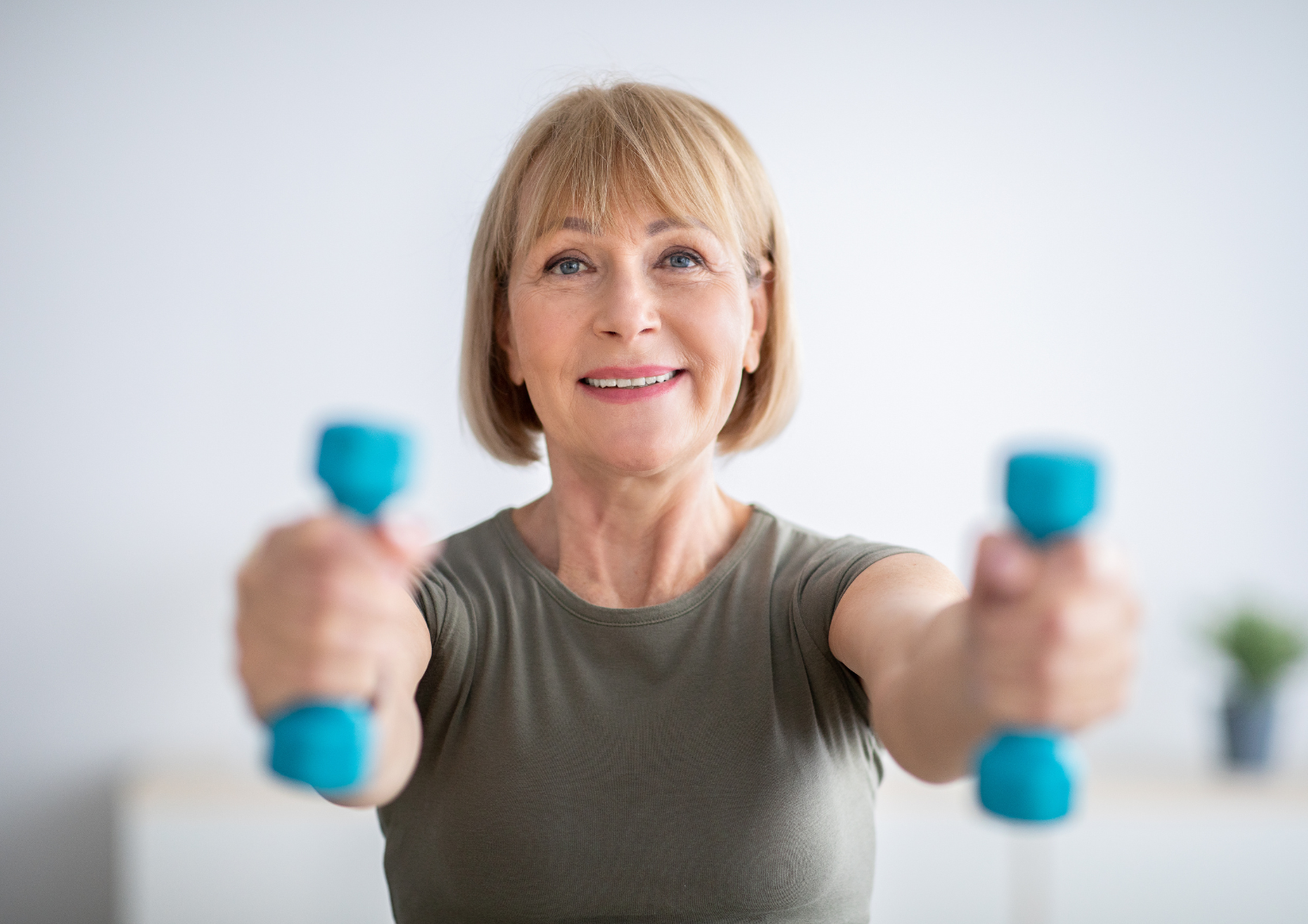What if peri & post menopause wasn’t about loss, but about gaining strength?
03 5406 0228
Musculoskeletal Symptoms of Menopause
Menopause is a natural transition, a powerful evolution. It marks a time when many women step into a deeper sense of self, resilience, and wisdom shaped by decades of life experience and caring for others. Aging is not about fading - it’s about rising into your power, confidence, and vitality. At 3D Physiotherapy, we support you to navigate these changes by drawing on your lived experience and deepening your connection with your body.
While peri-menopause and menopause are often recognised by cliché symptoms like hot flushes, mood swings and night sweats, its impact runs much deeper. Menopause is a whole-body transition that can silently affect muscles, joints and connective tissues in ways many women don’t immediately link to hormonal change. These physical signs are common, yet frequently overlooked or mis-diagnosed, leaving many to navigate discomfort in confusion, often putting symptoms down to ‘getting older’.
As oestrogen levels plummet, especially after the rollercoaster of perimenopause (which can start as early as 30 but more commonly around 40), many women find themselves facing unexpected aches, stiffness, and even injuries. Oestrogen isn’t just a reproductive hormone - it’s a powerful anti-inflammatory agent that helps keep our musculoskeletal system strong, supple, and pain-free. When it drops, the ripple effects can be surprising and deeply disruptive to daily life.
Common issues we see in clinic:
General loss of muscle mass – leading to weakness, fatigue, pain and difficulty with tasks like getting off the floor, climbing steps, grip strength and carrying heavy things
Soft tissue pain and weakness – think plantar fasciitis/heel pain, gluteal tendinopathy (pain and weakness at the back of the hips), shoulder pain (rotator cuff/frozen shoulder/bursitis), due to reduced quality and strength of tendons and ligaments
Increased risk of fractures – think hip and wrist fractures due to falls and reduced bone density (osteoporosis)
Joint pain – hips, knees, back and shoulders, often worse in the morning
Genito-urinary symptoms – frequency, urgency and loss of control when laughing coughing, sneezing or jumping as well as UTI’s are a common symptom in menopause
The good news? 3D Physio is well placed to help
With targeted strength training programs, balance and mobility exercises, physio-led rehabilitation can dramatically improve strength, pain, control, function, and confidence.
Muscle: The Organ of Longevity
Skeletal muscle is your insurance policy against frailty and all of the chronic diseases. Healthy muscle is a metabolic powerhouse, a hormonal buffer, and a key to longevity. Experts like Peter Attia, Dr. Vonda Wright, and Stacy Sims highlight that muscle mass is one of the strongest predictors of health span - how long we live well.
Muscles don’t just shape and move us, healthy and strong muscles:
Soak up blood sugar – reducing the risk of type 2 diabetes
Increase metabolic rate – helps us burn more fat
Reduce inflammation – less pain and stiffness
Support hormone production – testosterone and growth hormone
Contribute to increased bone density – reduced fracture risk
Improve agility, balance and confidence – reduced fear and risk of falling
Improve cognitive function – improved memory. mood and brain fog
But here’s the challenge: as we age, we face sarcopenia - the gradual loss of muscle mass and strength, starting from the age of 30. Women are at higher risk than men because the loss of oestrogen accelerates the loss of muscle mass. Left unchecked, it can lead to pain, weakness, falls and frailty. If you’re not fighting for your muscle mass with strength training, you are losing it – at a rate of 3 to 8 % per decade.
It’s never too late!
frailty is optional
decline in strength is optional
loss of confidence in your body is optional
How we can help:
At 3D Physio we provide thorough baseline testing via our in-house strong4life screening tool. Through a battery of specially selected tests we pinpoint where your body is at (compared to others your age) in terms of strength, mobility and balance. We teach you how to work on any issues we find to help optimise your health and vitality during peri and menopause. Our carefully crafted groups like strong4life, Onero™ and CoreAlign provide appropriate strength training, agility, balance and core stability exercises to help you stay confident in your body.
You can be strong at every age!
Bone Density and Fracture Risk: The Silent Epidemic
50% of women over 50 will suffer an osteoporotic fracture. Hip, spine, and wrist fractures are common and often life-altering. After a hip fracture, 30 percent of women die within a year, and most never regain their previous level of independence.
Strength training is one of the most powerful tools to increase bone density, reduce fall risk, and build protective muscle.
Programs like Onero™, based on the LIFTMOR research, have shown that high-intensity resistance training, including heavy lifting and jumping, is safe and effective for peri and postmenopausal women. Even if you have been diagnosed with osteopenia or osteoporosis (and even if your pelvic floor is not as good as it used to be).
At 3D Physio you are in safe hands with our two accredited Onero™ coaches. Both are experienced in delivering this unique strength training program designed to increase your bone density and prevent falls. We start where you are and progress at your pace.
Final Thoughts
Menopause is not a loss - it’s a renaissance. Your body is changing, yes, but it can also adapt, evolve, and invite you to step into a new kind of strength. With muscle, mindset, and movement, you’re not just aging - you’re thriving.
Are you ready to feel strong, capable and confident through menopause?
Book your personalised assessment today and take the first step towards strength and vitality.




